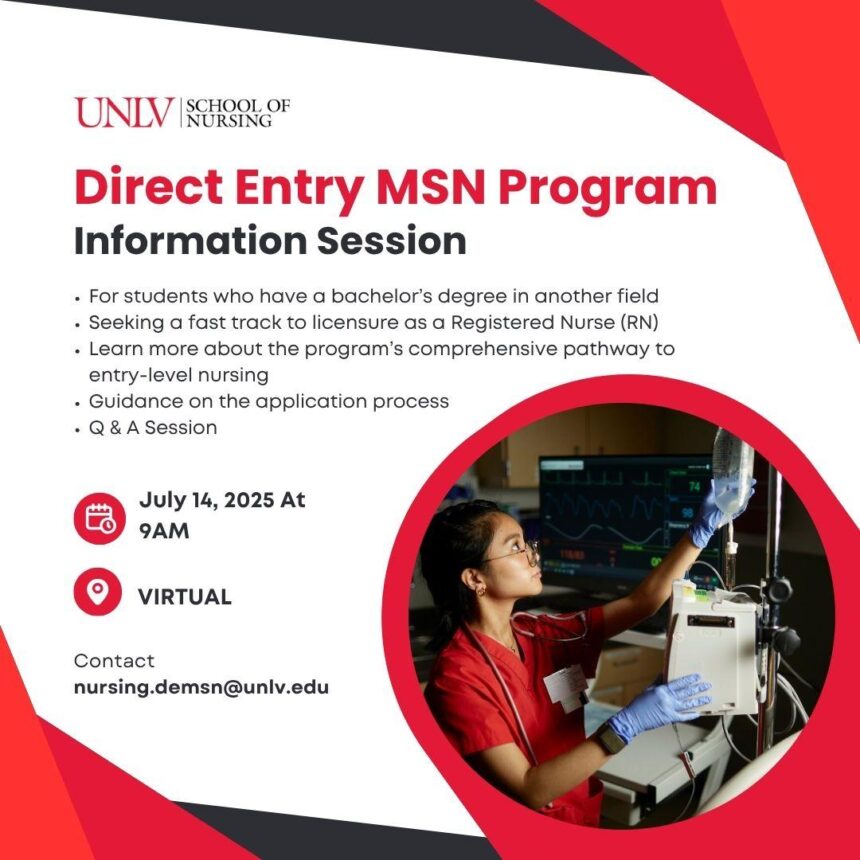The University of Nevada, Las Vegas (UNLV) has launched a new initiative to address the growing shortage of forensic nurses across the state. As Nevada faces increasing demands for specialized medical professionals trained to support victims of violence and collaborate with law enforcement, UNLV’s program seeks to bolster workforce numbers and enhance the quality of forensic care.The effort comes amid rising concerns over the impact of staffing gaps on the criminal justice system and public health, highlighting the critical role forensic nurses play in both community safety and survivor advocacy.
UNLV Launches Innovative Curriculum to Address Forensic Nursing Gap
Addressing a critical workforce shortage in Nevada, the University of Nevada, Las Vegas has introduced a pioneering curriculum designed to expand expertise in forensic nursing — a specialized field that intersects healthcare and criminal justice. This cutting-edge program equips nurses with the skills to conduct forensic examinations,collect and preserve evidence,and provide compassionate care to victims of violence and trauma. By partnering with local law enforcement agencies and healthcare facilities, the initiative ensures students gain hands-on experience, making them promptly valuable within communities grappling with rising forensic case demands.
The new curriculum features key components aimed at bridging the educational gap:
- Advanced training in forensic evidence collection and documentation
- Legal and ethical considerations unique to forensic nursing
- Interdisciplinary collaboration with criminal justice professionals
- Simulation labs replicating real-world forensic scenarios
- Support for pursuing national certification in forensic nursing
| Program Highlights | Projected Impact |
|---|---|
| Hands-on Clinical Rotations | Increase qualified forensic nurses by 30% in 5 years |
| Partnerships with Local Agencies | Strengthen victim advocacy and care coordination |
| Focus on Trauma-Informed Care | Improve patient outcomes and evidence integrity |
Experts Emphasize Importance of Specialized Training in Rural Nevada
Leading professionals in healthcare and forensic sciences stress that rigorous, specialized training is crucial to improving the capabilities of forensic nurses working in rural parts of Nevada. These areas frequently enough face challenges due to limited access to resources and experienced personnel. Experts argue that targeted education not only enhances the quality of care but also supports lawful evidence collection practices, which are vital for criminal investigations and supporting victims of violence in isolated communities.
Key benefits of specialized forensic nursing training include:
- Enhanced skill sets tailored to unique rural healthcare environments
- Improved coordination between healthcare providers and law enforcement
- Increased retention of nurses in underserved areas through professional development
- Boosted confidence in delivering trauma-informed care under pressure
| Training Focus | Impact on Rural Communities |
|---|---|
| Evidence Collection Protocols | Ensures legal integrity in remote cases |
| Trauma-Informed Patient Care | Builds trust and promotes healing |
| Collaboration with Law Enforcement | Facilitates swift and coordinated response |
Collaboration Between Healthcare and Law Enforcement Strengthens Program Impact
The partnership between healthcare professionals and law enforcement officers is proving to be a crucial element in addressing the shortage of forensic nurses in Nevada. By fostering open communication and joint training initiatives,both sectors are creating a more integrated approach to handling cases involving sexual assault and other forms of violence. This collaboration not only enhances the quality of care provided to victims but also improves the efficiency of evidence collection and chain-of-custody protocols, which are essential for prosecuting offenders effectively.
Key elements of this cross-disciplinary collaboration include:
- Shared Training Programs: Law enforcement officers and forensic nurses participate together in workshops, building mutual understanding of each other’s roles and procedures.
- Coordinated Response Teams: Specialized units that combine healthcare expertise with investigative skills to respond swiftly and sensitively to incidents.
- Information Exchange Platforms: Secure systems established for real-time sharing of case data, ensuring accurate documentation and reducing delays in investigations.
| Benefit | Impact |
|---|---|
| Improved Victim Support | More comprehensive care and emotional support |
| Efficient Evidence Handling | Increased conviction rates in court |
| Resource Optimization | Reduced duplication of efforts and costs |
Calls for Increased Funding to Expand Forensic Nursing Workforce Across the State
Healthcare professionals and community advocates are urging state lawmakers to allocate increased resources toward expanding Nevada’s forensic nursing workforce. The shortage of trained forensic nurses has led to notable delays in victim care and evidence collection, compromising the justice process. Experts emphasize that bolstering funding can support critical training programs, increase recruitment efforts, and enhance retention rates within this specialized field.
Key priorities outlined by stakeholders include:
- Developing scholarships and loan forgiveness programs to encourage entry into forensic nursing
- Expanding clinical training facilities across urban and rural areas
- Implementing competitive salaries and professional development incentives
- Enhancing collaboration between law enforcement, healthcare, and academic institutions
| Funding Category | Current Allocation | Proposed Increase |
|---|---|---|
| Training & Education | $250,000 | $500,000 |
| Clinical Infrastructure | $150,000 | $300,000 |
| Staff Retention Programs | $100,000 | $250,000 |
Insights and Conclusions
As Nevada continues to confront a growing demand for forensic nursing professionals,UNLV’s new program represents a critical step toward addressing this shortage. By equipping students with specialized training and practical experience, the initiative aims to strengthen the state’s capacity to support victims of crime and improve the overall efficiency of forensic investigations. With the program’s launch, UNLV is not only filling a vital gap in Nevada’s healthcare and justice systems but also setting a precedent for collaborative efforts to meet evolving community needs.
